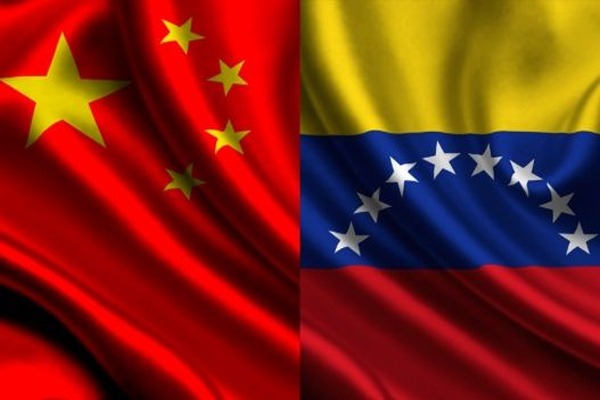Anhui Erhuan Petroleum Group to enter Petrokariña JV. Kerui Petroleum awarded contract in Orinoco Oil Belt.

Eamonn Brennan and Mery Mogollon, Platts S&P Global
CARACAS
EnergiesNet.com 07 26 2024
Venezuela has granted two Chinese companies, Anhui Erhuan Petroleum Group and Kerui Petroleum, oil production contracts in the Acema, Oritupano-Leona and Mata fields and in the Ayacucho 2 block in the Orinoco Belt, sources related to the negotiations said July 25.
The Chinese company Anhui Group will enter as a partner of the Venezuelan state-owned PDVSA in the joint venture Petrokariña, whose operations are located in the eastern part of the country, between the states of Monagas and Anzoátegui,” said a PDVSA official on condition of anonymity.
The Petrokariña JV will operate in the Acema, Oritupano-Leona and Mata fields, which contain light crude reserves.
Anhui Erhuan Petroleum Group, headquartered in Wuhu Annui, China, is a petroleum wholesale distributor. According to its web site it was the first private enterprise in China to receive a certificate of approval for the wholesale operation of finished oil from China’s Ministry of Commerce. The company did not respond to a request for comment.
PDVSA’s partners in the Petrokariña JV were Petrobras with 29.2% participation and Inversora Mata with 10.8% participation. In June 2024 Petrokariña’s production was 200 b/d.
However, “Petrobras closed its doors in Venezuela May 2017 because of PDVSA’s debt of more than $1.2 billion,” said a Petrobras executive familiar with the company’s Venezuela operations who spoke on condition of anonymity.
“The fields that Petrobras had in Venezuela under the joint venture model (east: Petroritupano, Petrokariña and Petrovenbras; west: Petrowayu) are now owned by the Argentine company Integra Oil & Gas,” the executive said.
Inversora Mata and Integra Oil & Gas could not be reached for comment.
“Kerui Petroleum is entering the Ayacucho 2 field, in the Ayacucho block of the Orinoco Belt, which has not been developed,” the PDVSA official said.
Ayacucho 2 has reserves estimated at 29 billion barrels of extra-heavy crude, according to available official data.
Kerui Petroleum, headquartered in Dongying, China, is one of China’s leading oil services and equipment manufacturers. In 2023, Ukraine listed it as an “international war sponsor” over its continued business with Russia.
Kerui did not respond to a request for comment.
Additional details of these contracts with Chinese companies were not available.
Chevron’s Petropiar leading output gains
PDVSA has signed contracts with several companies in recent months, even as the US reimposed sanctions on concerns that Venezuelan President Nicolas Maduro was preventing fair elections from taking place.
Maduro aspires to be re-elected in office for the third time in elections on July 28.
The Venezuelan National Assembly approved a 15-year extension of the oil production activities of the Petropiar joint venture (PDVSA 70% Chevron 30%) in the Ayacucho block of the Orinoco Belt on June 18.
Spain’s Repsol said it expects an output boost following an expansion agreement with Venezuela’s PDVSA to double output from its Petroquiriquire JV.
Petropiar output averaged 89,600 b/d in June, up 31,600 b/d on the year, according to PDVSA data. Omar Farias Boada, a member of Venezuela’s National Assembly energy commission, has said Petropiar’s goal is to boost output to 150,000 b/d by 2029.
In addition to the extraction of extra-heavy crude oil, Petropiar operates a crude oil upgrader with a capacity of 190,000 b/d.
Chevron has been a key factor in the moderate rebound of oil production in Venezuela. While US sanctions remain in place, the US Treasury Department authorized Chevron to “resume limited natural resource extraction operations in Venezuela” on November 26, 2022.
Maduro guaranteeing ‘security and stability’
Several other companies have received oil contracts from the Venezuelan government in recent months, according to unofficial media reports, including Canada’s New Stratus Energy, GoldPillar, a British Virgin Islands-based company, and India’s Jindal Power.
Venezuela and Trinidad and Tobago signed agreements for the development of the offshore natural gas project called Cocuina-Manakin field on July 24.
Cocuina-Manakin border fields were unified through a bilateral agreement signed in 2015.
“We are ready and willing to negotiate with whomever we have to negotiate for agreements for the development of oil and gas resources,” said Maduro at the signing ceremony of the agreements held in Caracas on July 24.
“I tell investors that I am the only one who guarantees legal security and stability for all the oil and gas projects they want to develop,” said Maduro at the event, which was broadcast by the state-owned Venezolana de Television channel.
“If you want to come to invest, come on time. Many have already arrived, some of them we cannot say because they were signed under special laws to protect them, but a rain of investments in oil and gas is arriving,” Maduro added.
Maduro did not disclose details of the special laws he has used to sign the agreements.
“The US sanctions have hurt us because we lost 99% of income, but we are getting ahead,” Maduro said.
“The likelihood of electoral manipulation and an anticipated continuation of human rights violations will serve as the basis for the US government to maintain the current sanctions framework against Venezuela’s petroleum sector, regardless of
the winner of the US presidential election in November. Future upstream investment opportunities in Venezuela are therefore likely to remain limited despite the Maduro government’s eagerness to attract much-needed foreign capital,” said S&P Global Commodity Insights analysts Pedro Martinez and Ford Tanner in a July 22 report.
Commodity Insights expects Venezuela “will produce approximately 800,000 barrels per day of crude oil and condensates through 2025,” they said.
spglobal.com 07 25 2024












